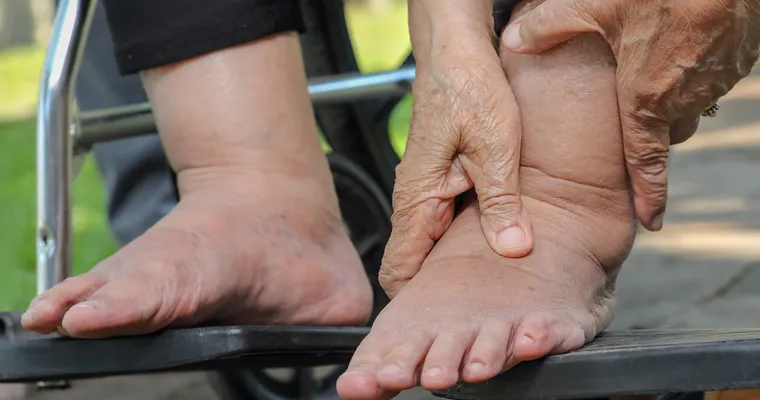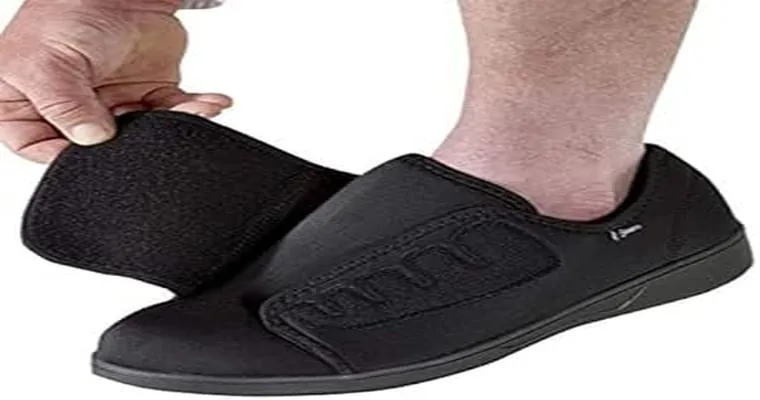Dealing with "swollen feet" and "ankles" in seniors is a common issue that caregivers encounter. This condition, often referred to as "edema", can be caused by various factors, including poor circulation, medications, or underlying health issues. As a caregiver, understanding how to manage and alleviate this discomfort is crucial for enhancing the quality of life for your loved ones. Here are some practical tips to help you effectively manage swollen feet and ankles in seniors.
Encourage Regular Movement
Encouraging your senior loved ones to engage in regular movement can significantly help reduce swelling. Simple activities like walking, stretching, or leg exercises can promote better "circulation". Even small movements, such as wiggling toes or rotating ankles while seated, can make a difference. Aim for short, frequent sessions throughout the day to keep blood flowing and prevent stiffness.
Elevate the Legs
Elevating the legs is an effective way to reduce swelling. Encourage seniors to prop their feet up on a cushion or pillow when sitting or lying down. Elevation helps gravity assist in draining excess fluid from the lower extremities. Aim for a height that is above the level of the heart for optimal results.
Compression Stockings
Investing in "compression stockings" can provide relief for seniors experiencing swollen feet and ankles. These specialized stockings apply gentle pressure to the legs, promoting better blood flow and reducing edema. Be sure to consult with a healthcare professional before choosing the right type and size for your loved one.
Monitor Fluid Intake
While it may seem counterintuitive, monitoring fluid intake can help manage swelling. Encourage seniors to drink an adequate amount of water throughout the day, as proper hydration can prevent fluid retention. Additionally, limiting salt intake can also help reduce swelling, as sodium can lead to fluid buildup in the body.
Foot Soaks and Massage
A soothing foot soak can be a relaxing way to alleviate swollen feet. Fill a basin with warm water and consider adding Epsom salt, known for its anti-inflammatory properties. After soaking, gently massage the feet and ankles to stimulate circulation and relieve tension. This simple routine can provide comfort and improve mobility.
Regular Check-ups
Regular medical check-ups are essential for seniors, especially when dealing with persistent swelling. Encourage your loved one to discuss their symptoms with their healthcare provider, as swelling can sometimes indicate a more serious underlying condition. A healthcare professional can provide tailored advice and treatment options.
Maintain a Healthy Diet
Encouraging a balanced diet rich in fruits, vegetables, whole grains, and lean proteins can also support overall health and help manage swelling. Certain foods, like bananas and avocados, are high in potassium, which can aid in maintaining fluid balance in the body. Additionally, maintaining a healthy weight can reduce pressure on the legs and feet, further minimizing swelling.
Create a Comfortable Environment
Ensuring that your loved one's living space is comfortable and accommodating can play a significant role in managing swollen feet and ankles. Provide supportive footwear with ample cushioning and arch support. Avoid tight-fitting shoes and encourage the use of slippers or sandals that allow for swelling without restriction.
Conclusion
Managing swollen feet and ankles in seniors requires a combination of lifestyle changes and supportive care. By incorporating these tips into your caregiving routine, you can help alleviate discomfort and promote better circulation. Always remember to consult with healthcare professionals for personalized advice and treatment options tailored to your loved one’s specific needs. With the right approach, you can make a positive impact on their health and well-being.





